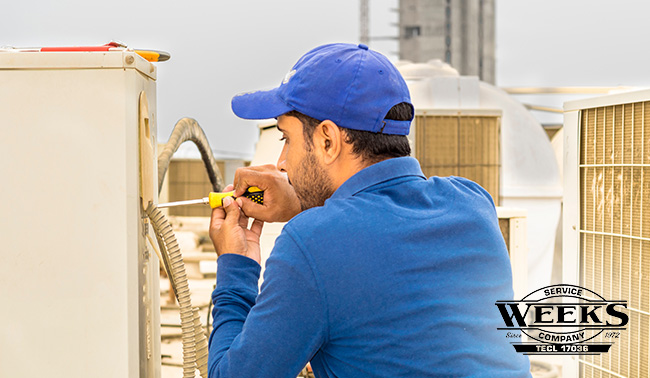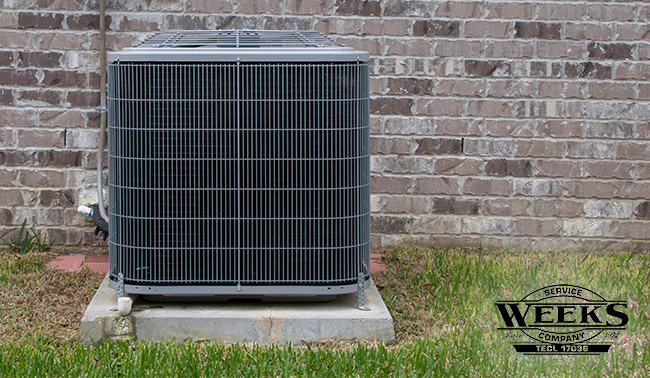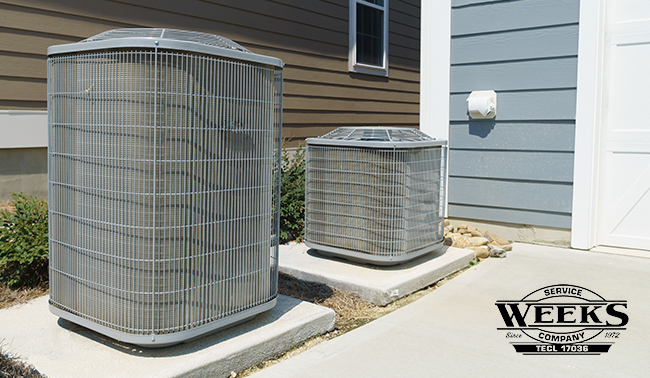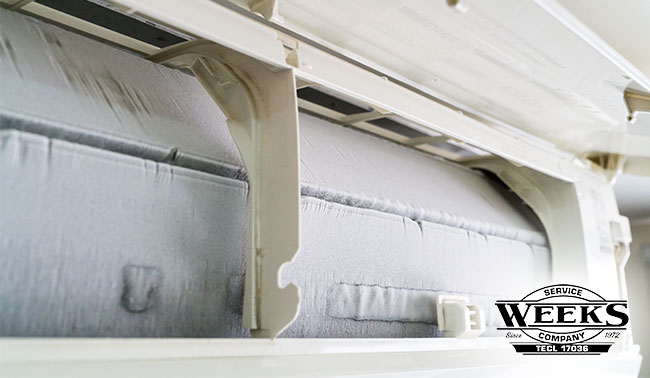
You’ve probably thought about it— the day your trusted air conditioner finally gives out and you have to find a replacement. It’s a day you probably aren’t looking forward to because you most likely don’t want to deal with the frustration of finding a new AC system and getting it installed. However, you can make that dreaded day a little easier for you by being prepared. And the first step to being prepared for a total AC breakdown is by knowing about the signs of air conditioner failure. The team at Weeks Service Company is here to tell you how to know if your AC is failing, so you don’t have to carry on with a malfunctioning air conditioner that takes up your time and money.
1. AC Is Not Blowing Cold Air
Your AC could be blowing warm air for a variety of reasons such as the ones listed below. You can fix these problems with the help of a professional. However, if your AC is consistently doing this, even after you consult a professional, your air conditioner might be signaling its incoming end.
- Your Evaporator Coil is Freezing Up
A dirty evaporator coil or a dirty air filter can lead to your evaporator coil freezing up. To solve this problem, turn off your unit, replace the air filter if necessary and wait for the evaporator coil to thaw. If the freezing persists afterwards, get in touch with a professional.
- There Is A Refrigerant Leak
Refrigerant is an important coolant present in your AC system which plays a vital role in cooling your home. If your AC is blowing warm air, there is a chance it might be low on refrigerant due to leakage. You will need to call a professional to refill the refrigerant in your AC system as refrigerant can be hazardous.
If your AC uses the R-22 refrigerant, it’s important for you to know that R-22 is being phased out (banned) because it is harmful to the ozone-layer. By next year, R-22’s production and import will become illegal in the United States. If you have been considering replacing your AC, now is the time to act.
- Your Thermostat is On Heat
Your AC might be blowing warm air because of something as simple as your thermostat being left on heat. Check your thermostat to make sure it is on “cool” instead of “heat”. In addition, make sure the AC is set to “Automatic” instead of “Fan.”
2. Low Airflow
Low airflow coming from your AC could mean many things. It’s important not to jump to conclusions before trying everything out. Low air flow could be attributed to a dirty filter that just needs to be replaced. Low airflow could also be a sign of any leaks present in your AC’s ductwork. Sealing ductwork can be a dangerous task due to their hard-to-reach locations in the basement and attic, which is why it is best to contact a professional to inspect your ductwork.
Low airflow can also be a sign of a problematic compressor. The compressor in your AC system pressurizes the refrigerant to be pushed toward the condenser from the evaporator coil, changing refrigerant from hot, pressurized gas to cool liquid. Contact a professional you trust who can advise you on what you can do to deal with a malfunctioning compressor.
3. Recurring AC Breakdowns
This one is a no-brainer. If your AC is constantly blowing warm air, has low air flow or is consistently low on refrigerant, your AC might be signaling that something is failing. Recurring AC breakdowns could be a sign of poor maintenance, wrong AC size or poor installation. While you might need the help of a professional in finding the right AC size and proper installation, you can avoid frequent breakdowns by scheduling annual HVAC tune ups, changing your AC filter every 3 months at minimum, and checking in on your outdoor condenser once in a while.
4. Excessive Noise
Excessive noise is also one of the signs of air conditioner failure. A hissing or gurgling sound might indicate a leak in the refrigerant lines, while rattling might suggest that there is a loose item stuck within your AC’s fan. Squealing or screaming might be a sign of a problem with the compressor or an issue with the belt that connects the fan and motor.
Need A Professional? Contact Weeks Service Company!
There are many other signs of an air conditioner failing. Sometimes it’s just because your AC is too old and deteriorated and needs replacing. When you’re worried there’s something wrong with your AC, it’s important to contact a professional you trust who can give you sound advice. If you’re looking for experts in the League City area, look no further than Weeks Service Company! Give us a call at 281-738-1362 or fill out a service request form on our website.



